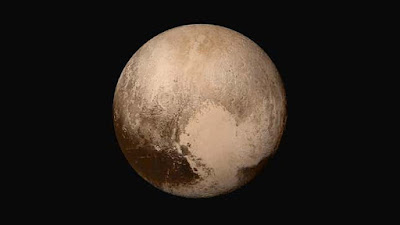Photo: NASA/Johns Hopkins University Applied Physics Laboratory/Southwest Research Institute
You know the old motto: Nobody can hear you screaming in space. Unfortunately, being trapped in our rapidly heated rock, we can hear everyone screaming very well, especially those ironically howling about the specifics of space.
Checked in at our degraded friend Pluto, it was certainly not a planet, despite a decade and a half of complaints from overly engaged astronomy fans (Welcome to the world of pop culture, astronomy fans).
His appointment lately has primarily sought to compensate everyone, the fact of the matter is that the International Astronomical Union is still very unlikely to step back on its 2006 decision apparently they raised their hands and gave their goforbroke request from "To hell.
We not only want Pluto to come back, we want 150 more damn planets to be added to the list."
That's the gist of a new article published in the research journal Icarus that argues that the IAUs are the real Jabronis here, dammit.
As NBC News breaks it down, the team of scientists claims that the current planetary classification system relies more on outdated astrological methods. (read: pseudoscientific) terminology and should be updated to reflect modernity. A "planet" is by definition "any geologically active body" in space that would not only bring Pluto into its lap, but also moons such as Europa, Enceladus and Titan, as well as the asteroid Ceres.
A total of around 150 new "planets" will be added to the eight existing ones. Unfortunately, as planetary geologist Paul Byrne explained, all of this backlash to taxonomy often overshadows many of the other really fascinating aspects of these celestial bodies of all sizes.
"Every time I gave a talk and put up a picture of Pluto, the first question wasn't about the geology of the planet, but why was it degraded?" he told NBC News. "It stuck with people, and that's a real shame.
from TechCrunch https://ift.tt/3eA97nU









0 comments:
Post a Comment